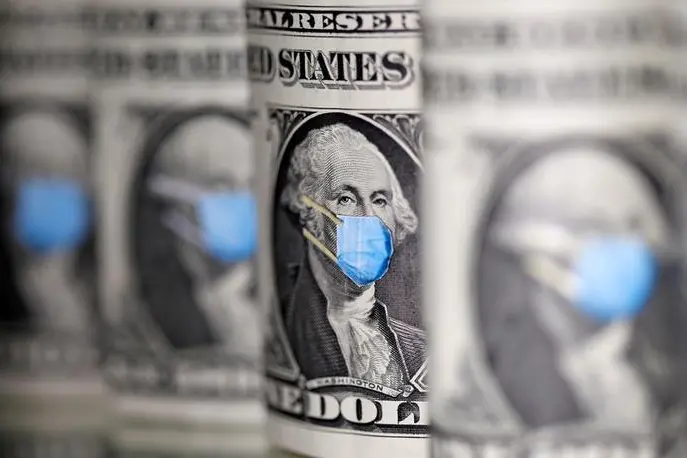PHOTO
LONDON - The dollar was headed for its best week in nearly nine months on Friday, with rival currencies struggling to shake the pressure exerted by the Federal Reserve's sudden hawkish shift in tone.
With investors also scrambling to price in a sooner-than-expected tapering of extraordinary U.S. monetary stimulus, the euro and the yen failed to recoup losses of the last two days.
Hovering around $1.19, the euro was flat against the dollar and on course for its worse week since October with a 1.6% fall.
With a dovish European Central Bank seemingly far behind the Fed in the monetary policy cycle, traders will be reluctant to buy euros against dollars.
"The U.S. central bank is one step ahead and as a result USD is likely to remain well supported against the EUR", Commerzbank strategists said in their Daily Currency Briefing.
"As no important data is due for publication today or at the start of next week, the FX market is likely to feel mainly the after-effects of the Fed meeting", they added.
With investors busy closing short positions since the Fed meeting, the dollar index =USD hit a more than two-month high of 92.010, and is on track for a 1.6% weekly gain, its largest since September.
At 0810 GMT, the dollar index was up 0.01% at 91.887.
The greenback is also on track for a 0.4% rise against the yen, which sat at 110.02 per dollar after hitting an 11-week low of 110.82. It was little moved by the Bank of Japan keeping its main policy settings steady, as expected.
Meanwhile the Australian dollar struck its lowest since December at $0.7508 and the Kiwi fell to its weakest since April at $0.6982, defying eye-popping reports on Australian jobs and New Zealand growth this week.
Sterling fell 0.24% to $1.3894 and was headed for a weekly loss of 1.5%.
The shakeout on foreign exchanges has been triggered by Fed forecasts, or 'dot plots,' showing 13 of the 18-person policy board saw rates rising in 2023, versus only six previously, with the median board member tipping two hikes in 2023.
While the plots are not commitments and have a poor track record of predicting rates, the sudden shift was a shock that has also reverberated through the bond market and metal prices.
(Reporting by Julien Ponthus and Tom Westbrook; Editing by Christopher Cushing; Gerry Doyle and Alexander Smith) ((tom.westbrook@tr.com; +65 6973 8284;))





















